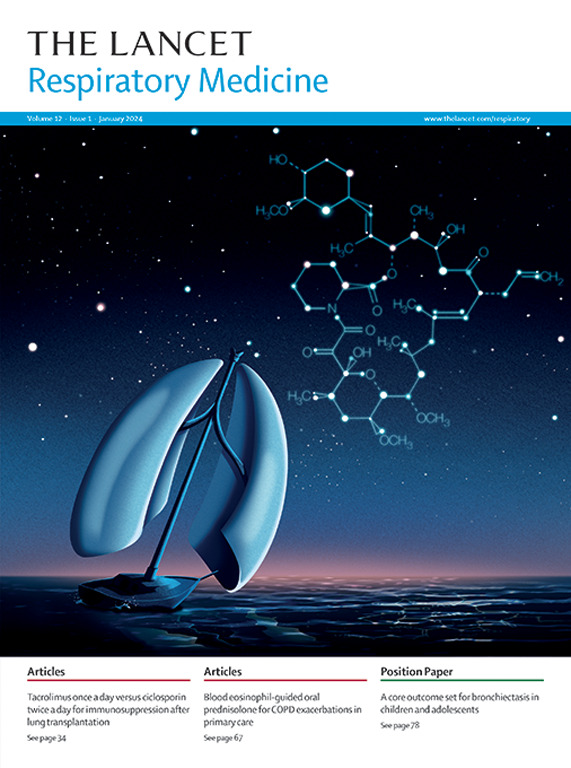免疫功能低下患者的败血症:诊断挑战和未来治疗
IF 38.7
1区 医学
Q1 CRITICAL CARE MEDICINE
引用次数: 0
摘要
败血症是一种危及生命的、失调的宿主对感染的反应。免疫抑制是感染和败血症的危险因素。然而,在个体患者中,提高感染和败血症风险的特异性免疫紊乱仍不清楚,这就提出了是否存在普遍免疫抑制状态的问题。在这篇综述中,我们探讨了免疫抑制和脓毒症之间的关系,详细介绍了其定义、原因和临床意义。我们讨论了原发性免疫缺陷、获得性疾病和药物对感染风险和败血症发展的影响。免疫功能低下的脓毒症患者通常表现为非典型症状,诊断测试结果可能不同,这使得早期识别变得困难。未来的前景需要新的生物标志物来改善早期败血症检测和量身定制的治疗来调节免疫功能。将免疫功能低下的患者纳入临床试验对于提高研究结果的相关性和改进针对这一弱势群体的治疗策略至关重要。本文章由计算机程序翻译,如有差异,请以英文原文为准。
Sepsis in patients who are immunocompromised: diagnostic challenges and future therapies
Sepsis is a life-threatening, dysregulated host response to infection. Immunosuppression is a risk factor for infections and sepsis. However, the specific immune derangements elevating the risk for infections and sepsis remain unclear in the individual patient, raising the question of whether a general state of immunosuppression exists. In this Review, we explore the relationship between immunosuppression and sepsis, detailing the definitions, causes, and clinical implications. We address the effect of primary immunodeficiencies, acquired conditions, and drugs on the risk of infection and the development of sepsis. Patients with sepsis who are immunocompromised often present with atypical symptoms and diagnostic test results can differ, making early recognition difficult. Future perspectives entail novel biomarkers to improve early sepsis detection and tailored treatments to modulate immune function. Including patients who are immunocompromised in clinical trials is crucial to enhance the relevance of research findings and improve treatment strategies for this vulnerable population.
求助全文
通过发布文献求助,成功后即可免费获取论文全文。
去求助
来源期刊

Lancet Respiratory Medicine
RESPIRATORY SYSTEM-RESPIRATORY SYSTEM
CiteScore
87.10
自引率
0.70%
发文量
572
期刊介绍:
The Lancet Respiratory Medicine is a renowned journal specializing in respiratory medicine and critical care. Our publication features original research that aims to advocate for change or shed light on clinical practices in the field. Additionally, we provide informative reviews on various topics related to respiratory medicine and critical care, ensuring a comprehensive coverage of the subject.
The journal covers a wide range of topics including but not limited to asthma, acute respiratory distress syndrome (ARDS), chronic obstructive pulmonary disease (COPD), tobacco control, intensive care medicine, lung cancer, cystic fibrosis, pneumonia, sarcoidosis, sepsis, mesothelioma, sleep medicine, thoracic and reconstructive surgery, tuberculosis, palliative medicine, influenza, pulmonary hypertension, pulmonary vascular disease, and respiratory infections. By encompassing such a broad spectrum of subjects, we strive to address the diverse needs and interests of our readership.
 求助内容:
求助内容: 应助结果提醒方式:
应助结果提醒方式:


